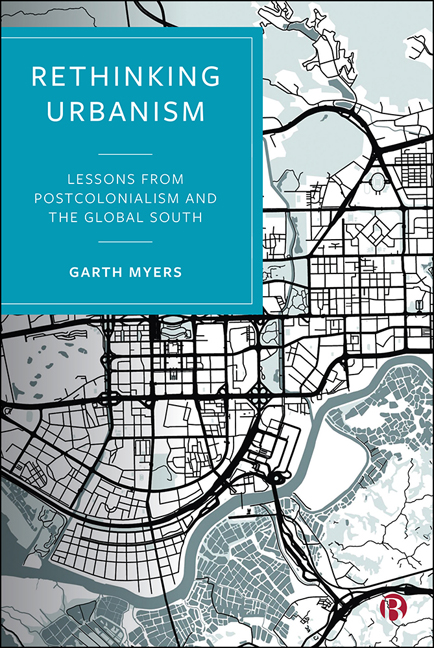Book contents
- Frontmatter
- Dedication
- Contents
- List of Figures
- List of Acronyms
- Glossary of Foreign Terms
- Acknowledgments
- Preface
- Introduction: Rethinking Urbanism from the South
- 1 Southern Processes of Planetary Urbanization in Hartford
- 2 Villages in the City: Patterns of Urbanization in the Pearl River Delta, Dakar, and Zanzibar
- 3 The Useful and Ornamental Landscapes of British (Post)colonialism
- 4 Submarine Urbanism: Cities People Make in ‘the Here and the Elsewhere’
- 5 ‘The Whole World Is Made in China’: Products and Infrastructures of Dis/connection
- 6 Urban Politics and Policy in a Southern Urban Planet
- Epilogue
- References
- Index
1 - Southern Processes of Planetary Urbanization in Hartford
Published online by Cambridge University Press: 03 March 2021
- Frontmatter
- Dedication
- Contents
- List of Figures
- List of Acronyms
- Glossary of Foreign Terms
- Acknowledgments
- Preface
- Introduction: Rethinking Urbanism from the South
- 1 Southern Processes of Planetary Urbanization in Hartford
- 2 Villages in the City: Patterns of Urbanization in the Pearl River Delta, Dakar, and Zanzibar
- 3 The Useful and Ornamental Landscapes of British (Post)colonialism
- 4 Submarine Urbanism: Cities People Make in ‘the Here and the Elsewhere’
- 5 ‘The Whole World Is Made in China’: Products and Infrastructures of Dis/connection
- 6 Urban Politics and Policy in a Southern Urban Planet
- Epilogue
- References
- Index
Summary
Introduction
This chapter applies global South ideas to an examination of planetary urbanization in an urban area conventionally located in the global North – Hartford, Connecticut. Southern concepts are highly relevant to understanding and remapping Hartford as a global urbanism. Developing an historical geography from indigenous, postcolonial, and Southern angles gives opportunities for detailing the specificities of planetarizing processes. Scholars need to look at longer-term processes producing planetary urbanization from elsewhere, to erase blind spots that universalizing theorizations produce (Dantas and Hart 2018). Global South approaches provide tools to see the making of urban areas like Hartford from margins that run parallel to and connect with Northern understandings.
It is still helpful to begin with those Northern understandings, to set the context for why Southern approaches are necessary. As of 2019, Hartford was the US's 47th-largest Metropolitan Statistical Area (MSA), with more than 1.2 million people. The city of Hartford is the MSA's core urban area, with around 125,000 people. In the late 19th century, it was the US's most prosperous hub of industrial wealth, but it fell into decline after 1960. Now, it is a shrinking post-industrial city surrounded by flat-lining suburbia (Myers 2014). Between 2010 and 2016, it was one of only four MSAs (with Cleveland, Pittsburgh, and Buffalo) among the 50 largest MSAs in the US to be declining in population.
Deindustrialization and shrinkage began in manufacturing – first with the suburbanization of production, and then with out-migration to cheaper global regions, in the 1960s and 1970s (Walsh 2013). Some product manufacturing upon which Hartford built its industrial base, like typewriters, became obsolete, and Hartford did not become the manufacturing locus for replacement technologies (that is, for typewriters, computers). The initial blue-collar decline was balanced for a time by Hartford's continued strength in white-collar, high-end services, depicted in shorthand by the US census employment code FIRE: finance, insurance, and real estate. But the FIRE burned out; employment rolls in these sectors peaked in Hartford in 1988 – ‘the insurance city’ has been losing insurance companies, headquarters, and jobs for more than 30 years (Chen and Shemo 2013; Walsh 2013).
Twenty-first century Hartford presents a paradox.
- Type
- Chapter
- Information
- Rethinking UrbanismLessons from Postcolonialism and the Global South, pp. 23 - 48Publisher: Bristol University PressPrint publication year: 2020

